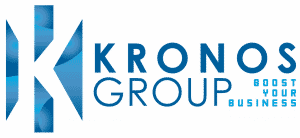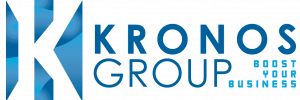What does procurement excellence look like in an evolving and competitive global market?

Summary
There is no singular definition of procurement excellence. From meeting executive expectations to risk mitigation and improving competitiveness, definitions vary.
Each of these priorities, however, are interconnected. It is up to companies to balance these priorities simultaneously while watching over the overall health of the company to ensure a more crisis-prepared, future-focused framework.
The key player in the achievement of any value-added company objective in the 21st century is digital technology. Not only does technology provide novel tools and techniques that expand the possibilities of procurement, but it also provides a path to unlocking the strategic value of procurement.
The digitalisation of procurement: From e-procurement to procure-to-pay platforms, digitalisation is opening new ground and Procurement 4.0 is taking the transformation of the function to new heights. Companies must prepare by establishing flexible frameworks that can continue to yield value in the long term without falling into obsoletion.
Facilitating continuous procurement optimisation: The market is dynamic and core business functions must follow suit. Continuous optimisation is a necessity to maintain competitive advantages in the long term. This requires a critical assessment of operations and continuous transformation.
Definitions of procurement excellence vary depending on industry priorities and changing market characteristics.
Some define it as the path to meeting the expectations set by the decision-makers of the function, for others, it means managing risks and mitigating them as they arise, some define it as the improvement of a company’s competitive edge, while another school of thought believes that excellence is a result of close alignment with business goals and strategising with these goals in mind at all times.
No matter which one of the many procurement priorities is put forward when defining what procurement excellence truly encapsulates, each of these values is interconnected. Meaning that the path to achieving purchasing and sourcing excellence, for many businesses, means an integrated approach to their integrated goals.
This is especially true in the market contemporary businesses are faced with today. The current business landscape is inundated with risks; those risks that are constants in any moving market and the risks that are a side effect of the continuing global health crisis.
The pressure is on companies to continue to balance internal and external goals, innovation needs, stakeholder objectives, and external pressures while maintaining healthy bottom lines through a resilient, crisis-ready business framework.
It may be impossible to define exactly what purchasing excellence will entail for any one business, but what can be done is an acknowledgement of the many contemporary tools, technologies, and techniques that are helping global companies unlock the true power of procurement.
Procurement as a strategic as well as an execution arm may be a relatively new concept, but well-renowned companies have already started to reap the rewards of placing more value on procurement.
By empowering procurement to take a more strategic role in decision making throughout 2020, Marks & Spencer was able to emerge from the crisis much stronger than before. They did this by leveraging the value of the data and knowledge they already possessed—in short, they used digitalisation.
The digitalisation of procurement
The market is evolving at a breakneck pace and we have technology and digital breakthroughs to thank for it.
As Director of Group Procurement at Marks & Spencer, Andrew Newnham noted, the ‘knowledge, transparency, and understanding’ companies require to achieve procurement excellence can only be achieved at the pace needed for the current market through cutting-edge digitalisation.
Digitalisation has introduced unforeseen capabilities to business functions all over the world, and procurement has by no means been left behind.
Procure-to-pay platforms, e-procurement, and functions such as eAuctions are changing the way businesses are operating and interacting with their networks and this trend is only set to gather pace.
With Industry 4.0 and Procurement 4.0 gathering pace, procurement digitalisation methodologies will continue to evolve faster than ever before. Companies must prepare for what lies ahead by ensuring that the systems they put in place today will not be obsolete by the time the system starts yielding returns on the initial investments that were made.
Flexible, crisis-ready frameworks that are capable of shifting with changing priorities and open to the introduction of new technologies and systems will prepare a company to not just keep up with the market, but become an industry leader.
Facilitating continuous procurement optimisation
Companies must approach procurement more strategically in the coming years, an approach that will be supported by robust procurement risk management and procurement transformation.
Given the dynamic nature of the changing market, however, regardless of how current and cutting-edge the techniques companies employ are at the time of implementation, continuous optimisation is a necessity.
This means that a company must continually turn a critical eye to its operations, identify gaps through which value is failing, and pinpoint the areas that can and should be improved so opportunities for higher value addition can be capitalised on.
Without this approach, the competitive advantage a company is able to capture cannot be retained for long.
Embracing procurement excellence
What the many definitions of purchasing excellence shed light on are the many methods through which a company can capture this quality of excellence.
Procurement is a core function of any organisation and one that every other strategic and operational business function relies on for its own smooth trajectory. Up-to-date and future-focused procurement strategies have the ability to deliver higher cost savings, greater business efficiency, and a more streamlined operating model.
Investing resources towards optimising procurement to reach excellence then, is sure to yield high returns and sustainable growth for any company.




